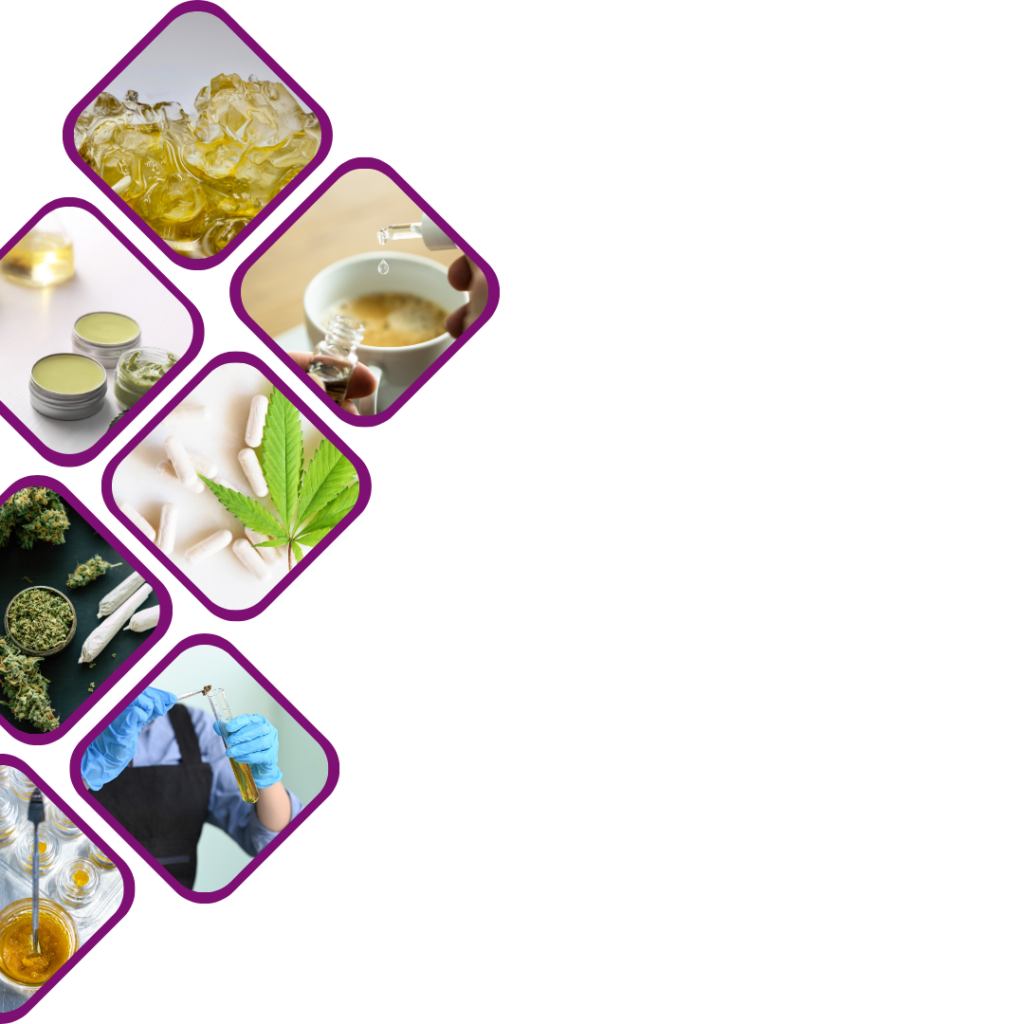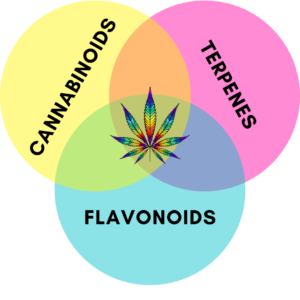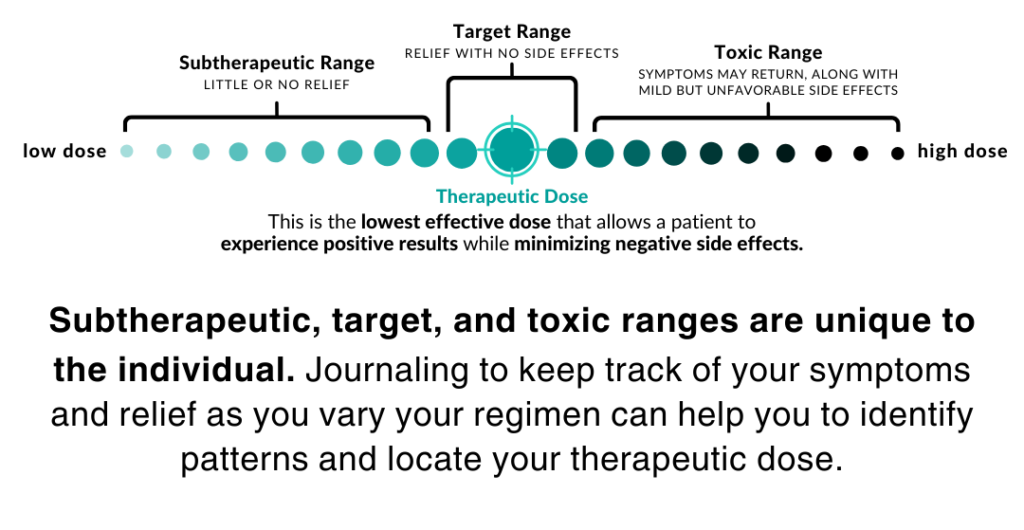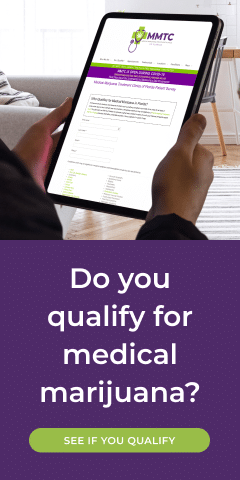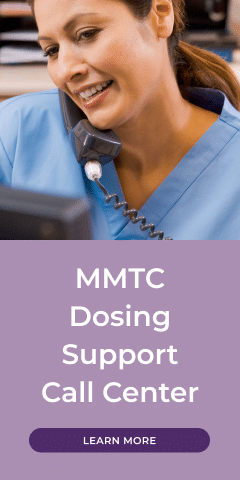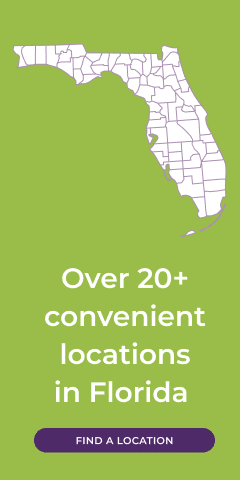Understanding Cannabis as Medicine
Key Components of Cannabis
Cannabinoids are molecules that stimulate the cannabinoid receptors of the body and brain.
Cannabis produces over 80 cannabinoids, including the well-known CBD and THC.
Delta-9-tetrahydrocannabinol (THC): Responsible for the psychoactive effects of cannabis.
Terpenes are organic hydrocarbons that give a cannabis strain its aroma and taste, and can add compounding effects.
Linalool: Also found in lavender, and aids in relaxation.
Flavonoids are compounds that contribute to the color, aroma, and taste of individual cannabis cultivars. Therapeutic uses contributed to flavonoids include antioxidant, anti-inflammatory, and possible disease prevention. Some of the 20+ flavonoids found in cannabis are unique to the plant, while others are also found in fruits, vegetables, and even insects!
The Entourage Effect describes the synergy of compounds found in cannabis that results in the enhanced efficiency of all compounds.
- CBD lessens the psychoactive effect of THC
- Terpenes enhance cannabis’ effects
- THC & CBD work together to enhance their medical benefits
The endocannabinoid system (ECS) is a network of chemical signals and cellular receptors densely packed throughout our brains and bodies. This network is a part of your nervous system and regulates key bodily functions including learning and memory, emotional processing, eating and sleeping, temperature control, and inflammatory and immune responses including pain.
Cannabinoid receptors (CB1) are located in the brain, the spinal cord, and in some peripheral organs and tissues. These receptors act like gates that open and close to control the levels and activity of most of the other neurotransmitters.
A second type of cannabinoid receptor, the CB2 receptor, is mainly found on white blood cells, in the tonsils and in the spleen. These help to control immune functioning and inflammation in particular. CB2 receptors don’t cause the high associated with cannabis.
To stimulate the cannabinoid receptors, our bodies produce molecules called endocannabinoids, which have a structural similarity to molecules in the cannabis plant. The molecules produced by the plant are called phytocannabinoids. Together they keep the body in homeostasis (balance).
What’s in a Medical Marijuana Product?
Route of Administration
The path by which a substance enters the body. These are generally classified by A) where the substance is applied, or B) where the target of action is.
Product Type
Common product types include isolate (pure CBD), ratio (CBD to THC), and cultivars (also called strains).
Potency
Amount of cannabinoids per dose, typically expressed in a percentage of total active cannabinoids, e.g. 34.5% THC, 40.1% CBD, 80.4% Total Cannabinoids
Terpene Content
Terpenes are organic hydrocarbons that give cannabis its aroma and taste, and can add compounding effects.
Note: Pay attention to the recommended dose and application instructions on your product. While some products can be used in multiple ways (e.g., flower that can be vaped OR smoked, tinctures that can be administered sublingually or mixed with food), others are potentially dangerous if misused (RSO can be taken orally or used topically but should NOT be vaped or smoked).
Product Example: Apples & Bananas Live Resin Cartridge from Insa
Effects: Calm, Happy, Relaxed, Energetic
Route of Administration
The product pictured is a live resin cartridge, to be used with a vape. INSA’s website suggests that this cultivar is also available as flower, live sugar, and a live resin pen.
Product Type
- Hybrid product (indica sativa mix)
- Cultivar: Apples & Bananas
Potency
- Total Active Cannabinoids 83.8%
- THC 77.4%
- CBD 0.2%
- Also contains CBC, CBDa, CBG, CBGa, CBN, THCv
Terpene Content
- Beta Myrcene 2.52%
- Ocimene 1.19%
- Beta Caryophyllene 1.17%
- Also contains Linalool, Alpha Pinene, Humulene, Limonene, Bisabolol
Medical marijuana programs, clinics, and dispensaries
Florida’s Medical Marijuana Program
- Status: Operational
- Law Signed: 2016
- State-Licensed Dispensaries? Yes
- Operational? Yes
- Qualified Patients (Active ID Card): 862,824 as of 12/08/23 ommu update
- Home Cultivation: No
- Reciprocity: No
- Employment Protections For Qualifying Patients: No
Caregivers
- 21+ years old
- Must agree to assist with a qualifying patient’s medical use of marijuana
- Must qualify for and have obtained a caregiver ID card issued by the Dept. of Health
Qualifying Conditions
- ALS
- Cancer
- Crohn’s disease
- Chronic nonmalignant pain*
- Epilepsy
- Glaucoma
- HIV/AIDS
- Multiple sclerosis
- Parkinson’s
- PTSD
- Seizures
- Terminal illness (no more than 12 months to live)
- Other debilitating medical conditions comparable to those enumerated
- *pain either caused by or originating from a qualifying condition
Patient Possession Limits
A physician may not issue a certification for more than three 70-day supply limits of marijuana or more than six 35-day supply limits of marijuana in a form for smoking.
Edibles
- 60 mg of THC daily
- 4,200 mg of THC per 70-day supply
Vaporized Products
- 350 mg of THC daily
- 24,500 mg of THC per 70-day supply
Oral capsules, tinctures
- 200 mg of THC daily
- 14,000 mg of THC per 70-day supply
Sublingual tinctures
- 190 mg of THC daily
- 13,300 mg of THC per 70-day supply
Suppositories
- 195 mg of THC daily
- 13,650 mg of THC per 70-day supply
Topical creams
- 150 mg of THC daily
- 10,500 mg of THC per 70-day supply
Marijuana in a form for smoking
- 2.025 grams daily
- 2.5 ounces marijuana per 35-day supply
For more information, visit https://bit.ly/flmm080223 to see our webinar on Florida Medical Marijuana Regulations
Medical Marijuana Clinics in Florida / clinics under Florida’s medical marijuana program
The state has determined that a medical marijuana patient must be:
- 18+ years of age
- Permanent Florida resident OR seasonal Florida resident
- Diagnosed with a qualifying condition or a comparable chronic condition
You will need to bring proof of residency and medical records containing a previous diagnosis of a qualifying Florida medical marijuana condition.
Your provider will work with you to identify medical marijuana treatment options and dosage forms to suit your individual needs.
During your appointment, your provider can help you apply for your Florida Medical Marijuana Card with the state Office of Medical Marijuana Use.
The physician can issue a recommendation of up to 210 days, after which a second doctor visit is required.
Frequently asked questions: Medical Marijuana Clinics in Florida
Where can I find a qualified physician who can order medical marijuana?
The OMMU provides a list of physicians who are authorized to order low-THC cannabis, medical marijuana or cannabis delivery devices. Patients are also able to utilize the Medical Marijuana Qualified Physician Search to find a qualified physician by location and specialty.
What is the difference between a recommendation and a prescription?
A marijuana doctor cannot prescribe marijuana because prescription drugs are regulated by the federal government. Cannabis is illegal under federal law, therefore medical marijuana prescriptions are not allowed. Instead, qualified physicians can recommend a product type and approximate dose, which the patient or caregiver can then purchase at the dispensary of their choice.
How long will my Florida Medical Marijuana ID Card last?
1 year, after which you will need to submit a renewal application to the OMMU
How do I get my limit increased?
Your medical marijuana doctor can request the OMMU make an exception, and the patient must then fill out the additional form. Note, a request for exception (RFE) must be re-submitted every at every 210-day recertification, and State approval can take up to 14 business days.
Dispensaries under Florida’s medical marijuana program
A patient may choose to buy their recommended medical marijuana product at the dispensary of their choosing, similar to how a traditional medical prescription can be filled by any pharmacy of the patient’s choice.
When the state has processed and approved your application, you can:
- visit a licensed medical cannabis dispensary to pick up your medical marijuana recommendation
- schedule for your medical marijuana recommendation to be discreetly and securely delivered to your home
Medical marijuana may only be purchased from licensed dispensaries, also called Medical Marijuana Treatment Centers.
Visit knowthefactsmmj.com/mmtc for a full list of licensed dispensaries.
Frequently asked questions: Medical Marijuana Dispensaries in Florida
What’s different about the product in dispensaries vs products elsewhere?
Medical marijuana users can access better-quality and higher-strength cannabis products from state-licensed dispensaries.
- Quality and consistency of content is verified by a Certificate of Analysis
- Ratio products (CBD to THC content) make it easier to find your ideal dose
- Usually rich in terpenes, or even offered in whole-plant products
How soon can I pick up medication? Do I need my physical Registry ID card?
A patient can purchase once they receive their approval email. Many dispensaries require approval email proof AND a driver’s license or other ID to purchase until the patient’s physical card is received.
Why do some dispensaries carry the same strain, and others don’t?
Dispensaries create custom cultivars and products designed to address various medical conditions. There is no regulation of strain names, so “XYZ” at one dispensary may be very different than “XYZ” at a different dispensary.
Journaling and self-guided dosing
Cannabis is BIPHASIC, meaning that it acts in distinct phases based on dosage.
- A low therapeutic dose allows a patient to experience positive results with minimal negative side effects
- After the threshold of “just right” to “too much” is crossed, the symptoms of the patient’s condition may return along with discomfort, slight nausea, and other mild but unfavorable side effects
The goal is to find the lowest effective dose that allows a patient to experience positive results while minimizing negative side effects.
- Tolerance varies enormously between individuals, based on experience, medical conditions, and an individual’s anatomy and physiology.
- You might compare it to the way your body reacts to substances like alcohol and caffeine.
This is why dosing with cannabis is difficult to determine without a little trial-and-error. Your treatment should be tailored to you!
Getting your dosing right WILL take some time, but finding your therapeutic dose is key to success.
- Listen to your body and write down your experiences so that you can see patterns.
- For an effective treatment plan, start low and go slow and then track as you titrate.
Titration is a method by which a patient slowly raises their dose until they find the ideal balance between efficacy and tolerability.
A patient titrates by slowly raising their dose in order to find their therapeutic dose.
Subtherapeutic, target, and toxic ranges are unique to the individual. Journaling to keep track of your symptoms and relief as you vary your regimen can help you to identify patterns and locate your therapeutic dose.
For more information on dosing, visit bit.ly/dosing062823 to see our webinar on Dosing with Medical Marijuana.
Putting it all together
To apply what we’ve learned to create an individual treatment regimen, we’ll consider:
Wellness needs like your symptoms and your preferences for effect
- Product details including a route of administration, product type, potency, and terpene content
- Environmental factors like your day-to-day schedule and your tolerance over time
NOTE: Medical cannabis can and should be used in conjunction with traditional medication and physician guidance
Creating a Regimen with Medical Marijuana
The STAR Method of Practical Application
- Symptoms & conditions
- Treatment parameters
- Application
- Routine
To begin creating a trial regimen for a patient, determine the following:
Symptoms & conditions
This information will help to determine an appropriate product type and terpenes.
- What condition is being treated?
- What symptoms are affecting ADLs (activities of daily living) and quality of life?
- What symptoms correspond with the known treatment capabilities of medical marijuana?
- What symptoms correspond with the treatment capabilities of terpenes found in cannabis?
Treatment parameters
This information will help to determine an appropriate starting dose based on your personal tolerance, and a schedule based on your lifestyle needs.
- When do you need relief? For how long?
- Do you have trouble falling asleep, and/or staying asleep?
- Do you need to be more clear-headed for work or daily activities at certain times?
Application
This information will help to determine a route of administration and refine your choice of terpenes.
- Are you comfortable trying a route of administration that may be new to you, or do you prefer something more familiar?
- Do you know how your body reacts to CBD? Do you know how your body reacts to THC?
- Do you prefer a product with a straightforward description and no frills, or something based on more personal details?
Routine
This information will help to determine a routine for consistency of product performance.
- Do you experience symptoms immediately upon waking up?
- Do your symptoms make it hard to sleep?
- If you were to try micro-dosing (vs larger doses less frequently), would it disrupt your day or put you in an awkward position?
- Are you able to take your medication alongside a meal or snack each time?
As you begin to take your medication, it’s important to track the effects along with the time and product in order to identify patterns. This will help you to determine if a dose is consistently effective, and/or if your tolerance is changing.
The following Sample Treatment Plans are for informational purposes only and is not medical or professional advice of any kind. See your physician for medical guidance.
Patient A
I have arthritis and neuropathy, and the pain in my joints is a big problem! It interferes with my mobility in the daytime and keeps me up at night. When I wake up I feel sore, and as I move around the pain gets worse. I need something that will let me go to work without feeling or seeming high, and it can’t be something that worsens my vertigo.
Symptoms & conditions
Joint pain, trouble sleeping with pain, vertigo. Chronic arthritis, neuropathy
Treatment parameters
Symptoms are very day, all throughout the day. Does not want to feel high during daily activities, work.
Application
Pain relief for joints, vertigo relief
Routine
Medium level of pain upon waking, worsens with movement throughout day. The pain lasts all day, every day.
Patient B
I experience anxiety all day, every day, and was diagnosed with a general anxiety disorder. My stress level rises and lowers depending on what I’m doing, where I am, etc. In my experience, dealing with all these symptoms can lead to bouts of depression.
My anxiety makes it hard to fall asleep and stay asleep because my mind is racing. I work in a position that includes face-to-face interaction with clients, and I do NOT want to feel or appear high/inebriated during work or other daily activities. I drive to work and back, and do errands in my own vehicle. I watch two very young, active grandchildren twice a week.
I am most comfortable with drops or capsules. I don’t like to vape, and I won’t smoke anything. I may be open to other methods if there’s a good reason. In the past I have tried hemp CBD oil and did not feel anything in the week I used it. I am typically very sensitive to caffeine, alcohol, and medication.
Symptoms & conditions
Constant Anxiety and varied stress, high risk of depression. Racing mind makes it hard to sleep.
Treatment parameters
Symptoms occur throughout the day. Does not want to feel high. Low THC tolerance predicted but not tested. Tried hemp CBD previously with no effect after approx. 1 week.
Application
Prefers tincture drops or oral capsules. Is open to other routes except for vaping, smoking.
Routine
Stress levels rise and fall depending on activity, vary from day to day. Baseline symptoms of anxiety are experienced all day, every day. Needs to be able to work and drive most days. Responsible for childcare two days each week, very mobile toddlers.
Resources
Medical Marijuana Treatment Clinics of Florida
MMTCFL.com | 850-906-5000
MMTC can put you in connection with expert physicians and resources to start your medical marijuana journey
MarijuanaAware Patient Education
Check out our past webinars on YouTube.com/MarijuanaAware

